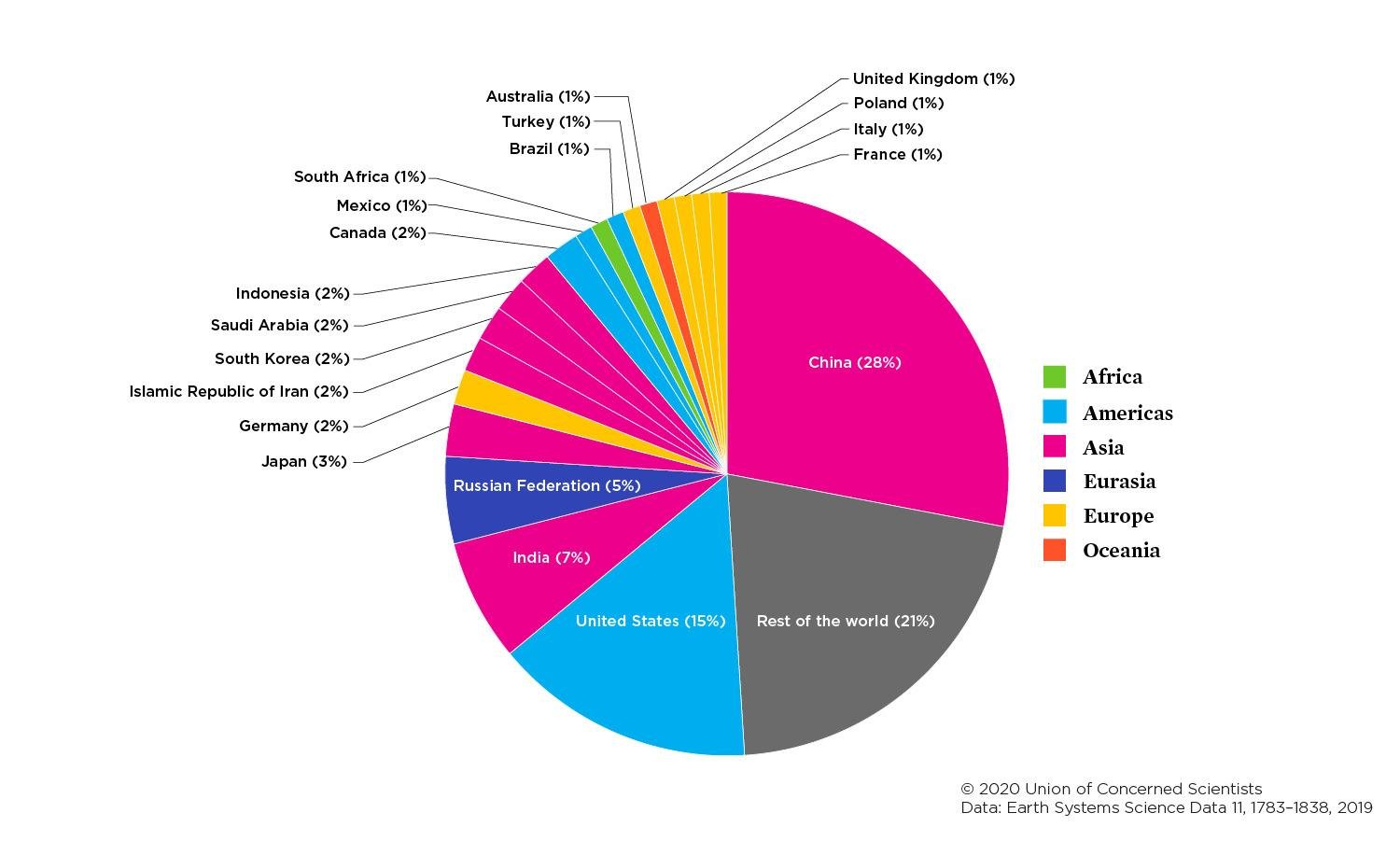Overview Climate Solutions
- Due Dec 5, 2023 at 11:59pm
- Points 6
- Questions 3
- Available Aug 5, 2023 at 12am - Dec 5, 2023 at 11:59pm
- Time Limit None
- Allowed Attempts 6
Instructions
Add info about good news https://yaleclimateconnections.org/2023/11/most-people-dont-realize-how-much-progress-weve-made-on-climate-change/
Sources of GHGs
In order to discuss climate solutions, we first have to understand where the problem comes from. We can look at the source of greenhouse gas (GHG) emissions with different frameworks.
-
- Which countries emit the largest amounts of GHG?
- Which countries emit the largest amount of GHG per person?
- Which countries have emitted the largest amount of GHG in total, over time?
You can find the answers to these questions in the graphs below.

Accessible text of Pie Chart of CO2 Emissions Per Country.docx
Accessible text for Countries with largest cumulative CO2 emissions since 1750.docx
Climate Mitigation
This is the effort to make things better (that's what mitigation means) by either reducing emissions ( the left side of the equations) or increased absorption of GHG (the right side of the equation below). Land sinks mean the parts of natural ecosystems that absorb carbon either through photosynthesis, or by undecomposed material in soils. Ocean sinks can mean both photosynthesis by algae, but also the absorption of CO2 as carbonic acid, calcium carbonate, shells, coral and limestone.
This graphic is from Project Drawdown's website. They advocate for climate solutions that are ready to go (the technology is already developed) and will be the most cost effective and make the biggest impact on GHGs. You will be working with their material in the discussion assignment at the end of this module.
 Accessible text of Emissions Sources and Natural Sinks.docx
Accessible text of Emissions Sources and Natural Sinks.docx
Climate Adaptation
As we have learned, there has already been an average 1o degree Celsius increase in temperature globally. This means there have already been changes, damage, suffering to humans and ecosystems. Climate adaptation is the effort to learn how to live and even thrive in this new world that we have created. This video introduces you to the idea:
There is no "one-size fits all” adaptation, but there are similarities in approaches across regions and sectors. Climate change adaptation actions often fulfill other societal goals, such as sustainable development, disaster risk reduction, or improvements in quality of life, and can therefore be incorporated into existing decision-making processes. ( from the 2018 4th Annual Climate Assessment section on climate adaptation)
Optional Resources
There are several groups working on climate adaptation here in Sonoma County. I recommend that you look at the following resources:
-
-
- Regional Climate Protection Authority (Sonoma County) Strategic Plan
- Imagine Sonoma County -creating a vision for a carbon free future for the county
- Sonoma Ecology Center work on climate preparedness
-